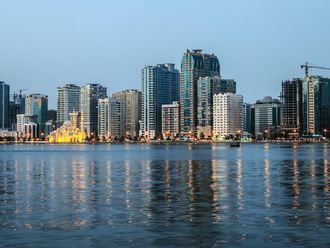
What makes a national strategy successful? It is years of planning, collaborations with key stakeholders, and working in unison towards a common goal.
When devising an overarching strategy, it is vital to remember that every national strategy begins with education. And fulfilling any national priority relies on providing qualified human capital, as well as a solid educational system that can support a country’s path to a successful future.
Some key factors in what helps a nation succeed stems from the direct investment in talent, capacity building and access to requisite knowledge needed in key industries and sectors that drive economic growth. UAE’s 'Projects of the 50's' fourth principle focuses on human capital being the main future driver for growth - reconfirming that attracting talent and building skills is what will position UAE at the top among its global counterparts.
Investing in education
Economists have determined that directly investing in education and qualified human capital is crucial to a country’s economic growth. The UAE allocated Dh9 billion towards education in the federal budget approved by the cabinet in 2021, with the aim of providing quality education services and enhancing a knowledge-based economy.
The UAE’s investment in education is building human capital to drive economic growth that will further help build community stakeholders in education – academics, students and research staff, who will then provide better qualified graduates for the workplace.
To develop human capital, we need to have a strong educational system that retains talent after graduation and coaches them with the fundamentals of success to build the next generation of leaders.
Bolstering the system
In efforts to further enhance expansion of International Branch Campuses (IBCs), the UAE applied a list of initiatives that focuses on the appointment and growth of experienced human capital within fields of study that are highly competitive and in demand such as Artificial Intelligence, data science, Internet of Things, and other non-traditional high-tech roles.
Prioritising the skills required to achieve the UAE’s 50-year project, the nation has already launched the National Programme for Coders that aims to attract 5,000 coders to support a a technology-centric society.
Lifecycle of education
The UAE has the highest number of international private K12 schools (511) in the world, as well as a number of international universities. And 400 of the Fortune 500 companies have their Middle East headquarters in the UAE. The UAE is also the second largest hub for attracting IBCs after China, where if you consider the vast difference in population size, this is quite an astounding feat.
The country is developing a lifecycle that takes a student from education through to university graduate and then employment, while retaining the human capital in the region to help build the UAE as the next emerging market higher education hub. This will make it a strong competitor to the Big 4 education destinations – the US, UK, Australia and Canada.
Promoting the UAE as education hub
From an educational tourism viewpoint, nations benefit from more than tuition fees, with the additional economic sustainability and growth that transnational students contribute, in terms of spending on the community’s development, housing, retail, and entertainment sectors.
According to the QS World Grad School Tour Applicant Survey, students consider the importance of the location just as much as choosing the university itself. It is important that a valuable investment is made into a regions’ infrastructure so that universities are motivated to set up their campuses. And for university students to benefit from an established infrastructure that includes neighboring hospitals, nurseries, retail outlets, entertainment districts and public transportation.
With a vision of putting education first, the UAE has developed a strong infrastructure and attracted leading international universities to set up here. This unique value proposition has seen the region make great strides in becoming the dominant emerging-market higher education hub.



